Nipple Piercing Aftercare Guide: Tips For Quick Healing
Discover essential tips to ensure a smooth and speedy recovery for this edgy body piercing.
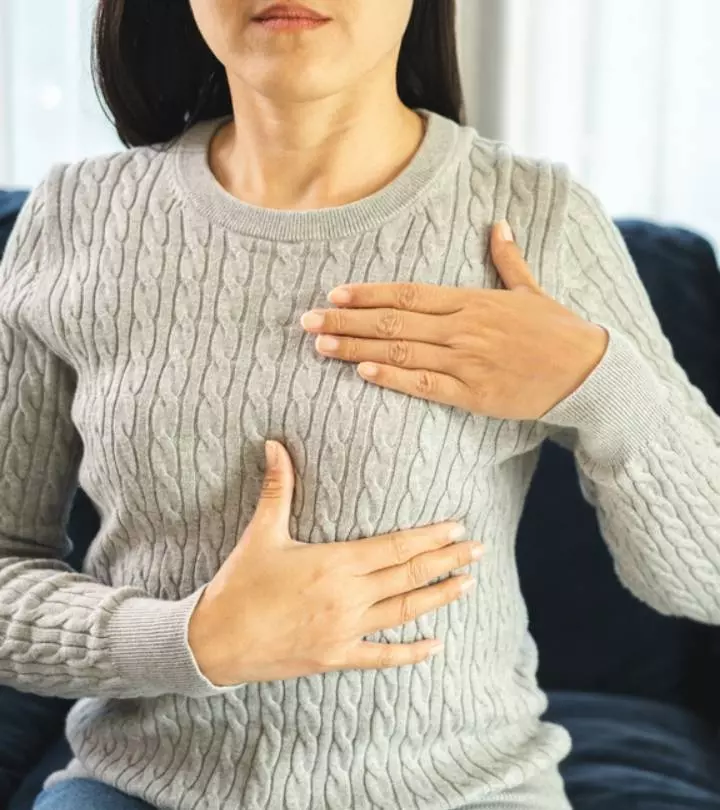
Image: Shutterstock
Nipple piercings are a unique way of expressing one’s individuality. But unlike ear piercings, they require more care and attention due to the presence of important ducts and blood vessels. That is why nipple piercing aftercare is an essential step in the healing process, leading to a stunning and well-maintained piercing.

The thought of aftercare might seem daunting, but armed with the right knowledge, you can easily handle your new piercing. This guide is filled with easy-to-follow tips that will help you keep your piercing in top-notch condition from the get-go. Whether you are well-acquainted with body piercings or just a beginner, knowing the fundamentals of aftercare is paramount. Scroll down for practical and effective care for a positive piercing experience.
In This Article
Nipple Piercing Aftercare: Dos And Don’ts
The world of piercing is vast, but there is one type of piercing that is making waves across the piercing-loving community is nipple piercing. However, knowing everything about it is crucial before indulging in it, including the healing process. Taking care of your fresh nipple piercing is not just about maintaining its appearance; it is about safeguarding your health. Proper nipple piercing aftercare is the key to a smooth healing journey. Here is a list of dos and don’ts to keep things on track and ensure your nipple piercings stay clean throughout the entire healing period.
Do
- Clean your hands with an antibacterial soap before touching the piercing to prevent introducing bacteria.
- Gently rinse your healing piercing with a sterile saline solution or warm water sea salt soak two times per day to aid healing.
- Pat the area dry with a clean, disposable paper towel as cloth towels may harbor bacteria that can jeopardize your aftercare practices.
- Wear comfortable, breathable, and loose-fitting clothing to reduce irritation and allow the piercing to heal properly. Avoid lace bras that can catch on the piercing; instead, opt for comfortable sports bras to provide better support and minimize irritation.
- Pay attention to normal changes and ensure that the area is kept clean and dry.
Don’t
- Twist or turn the nipple piercing jewelry as it can cause trauma to the healing tissue and possibly lead to piercing bumps.
- Use public pools, hot tubs, or other bodies of water, as they are full of bacteria that could lead to an infected nipple piercing. To know that nipple piercing has got infected, you need to understand the symptoms and follow the healing process to get better results.
- Use harsh cleaning chemicals like alcohol or hydrogen peroxide as they can irritate the healing piercing.
- Ignore the signs of infection. If something seems off, reach out to professional body piercers for advice.
- Skip your aftercare routine, even if the piercing seems to be healing well.
Adhering to these dos and don’ts of aftercare practices not only promotes a speedy recovery but also helps avoid common complications such as piercing bumps, bleeding, or hypertrophic scarsi Thick, raised scars that develop as a result of wound healing (1). Remember, a little extra care goes a long way in ensuring your piercing heals beautifully.
Other than these, the nipple piercing jewelry that you use must also be considered. A reputable piercer will often recommend starting with a straight barbell to minimize the formation of scar tissue and ensure a smoother healing process for your nipple piercing. After the initial healing period, you might consider switching from a barbell to nipple rings or captive bead rings to diversify your style. For those who prefer a different aesthetic, circular barbells can be a stylish alternative to traditional nipple rings, but always ensure that any jewelry change is done carefully to avoid applying prolonged pressure on the healing tissue.
 Did you know?
Did you know?Choosing the right clothes is an important step in the aftercare regimen. Learn more about it in the section below.
Key Takeaways
- Keeping the nipple piercing clean with saline rinses and wearing soft, breathable fabrics can help minimize infection and irritation.
- Delay exercising and avoid pools, hot tubs, and harsh products or chemicals to optimize and speed up the recovery process.
- Seek a doctor if you experience persistent pain, red streaks around the piercing site, and yellow-green discharge.
What To Wear After A Nipple Piercing?
Selecting appropriate attire after a fresh nipple piercing is essential for optimal healing. Wear loose tops made from soft, breathable materials such as cotton during the aftercare process to minimize irritation and allow for adequate air circulation around the pierced area. It is also important to ensure that clothing is clean to reduce the risk of infection. Avoid wearing restrictive or tight clothing made of rough fabrics as they might catch on the nipple piercing jewelry.
Women may benefit from wearing a soft, well-fitting sports bra or a seamless bralette to provide gentle support without applying excessive pressure on the healing piercing. It is also recommended to wear a fitted tank top during sleep to protect the piercing from excessive motion.
A blogger shared her experience of using a bra after getting a nipple piercing. She writes, “I was also told to wear a comfortable bra to sleep, NO LACE, this way it doesn’t snag on every little thread or get bothered by my every little move. I found a few spandexy-type bras that also allowed my piercings to breathe as well (i).”
Men can opt for comfortable, loose shirts during the initial healing phase to prevent any unnecessary friction or pressure on the new piercing. If one is accustomed to sleeping without a shirt, it would be prudent to wear a light, breathable T-shirt while sleeping to safeguard the piercing.
Additionally, clothing should be changed regularly to ensure that the area around the piercing remains clean and free from potential contaminants such as body fluids. Following these guidelines will contribute to a more efficient healing process. However, If you believe in changing styles and want to know when can I change my nipple piercing, it is crucial to understand the timing of your transition for better results, keeping in mind the healing process.
Keeping your piercing clean is an essential part of the healing process. But if you love exercising, then getting sweaty and dirty may hinder your recovery. Check out the section below to know when you can exercise after getting a nipple piercing.
How Long After A Nipple Piercing Can I Exercise?
Resuming exercise immediately after getting a nipple piercing often raises concerns about its impact on healing. The good news is you do not have to abandon your fitness routine entirely. However, proper aftercare and certain precautions are essential to ensure proper nipple piercing aftercare.
It is best to refrain from intense workouts for at least the first 24 to 48 hours post-piercing. This initial rest period helps manage the swelling and avoids any unnecessary strain that could aggravate the fresh nipple piercing. When you do decide to get back to your exercise regimen, wear a supportive sports bra or a firm-fitting top to help protect your piercing from friction and excessive movement.
It is also important to listen to your body. If you experience discomfort or see signs of irritation during your workout, ease up on activities that involve significant chest movement or contact. Always ensure that the equipment that may come in contact with your chest area is clean to prevent infection.
After your workout, clean the piercing hole with a salt solution soak or an antiseptic piercing rinse to help remove sweat and bacteria. By taking these mindful steps, you can continue to stay active while prioritizing the care of your new piercing.
The information mentioned above can reduce the chances of infection. But if you want to speed up and optimize the recovery process even further, check out the next section for some easy tips.
Tips For Better Healing
Enhancing the healing process for your nipple piercing revolves around the following nipple piercing aftercare steps:
- Avoid using lotions, creams, perfumes, makeup, and other personal care products near the pierced area as they can cause infection or delay healing.
- A balanced diet rich in vitamins and minerals, adequate hydration, and sufficient sleep can significantly boost the healing process.
- Avoid sleeping on your stomach as it can place undue pressure on the healing wound.
- Minimize consumption of alcohol and caffeine during the initial healing phase as they can increase swelling and delay healing (2), (3).
- Avoid tobacco products as they can impede the recovery process (2).
- Protect the pierced area from direct sunlight and tanning beds to prevent irritation and sensitivity.
- Engage in stress-reducing activities and maintain a positive mindset for better healing.
- Wait until the piercing is fully healed before attempting to change the initial jewelry to avoid irritation or infection.
 Trivia
TriviaIncorporating these practices into your healing regimen will help ensure that this intimate piercing heals optimally and reduces the likelihood of complications and infections. If you are wondering, ‘Do nipple piercings hurt?’ The answer can vary based on individual pain tolerance. But it can be painful for the first few days. Next, take a look at how to reduce the pain and irritation that comes with nipple piercing in the section below.
How To Ease Nipple Piercing Pain
If you are looking to alleviate the discomfort that comes with a new nipple piercing, here are a few effective strategies you can employ:
- Over-The-Counter Medication: Choose an appropriate pain reliever such as acetaminophen or ibuprofen to help reduce pain and swelling. Always follow the recommended dosage on the medication’s label to avoid any adverse effects. Check for any potential interactions with other medications you may be taking.
- Cold Compress: Apply the cold compress to the piercing site in short intervals for 15-20 minutes to prevent skin damage and reduce swelling. Ensure the compress is not too cold and is always covered with a cloth to avoid direct contact with the skin.
- Warm Compress: Applying a warm, moist compress to the area helps dilate blood vessels, enhancing circulation to the sore region and offering temporary relief from piercing discomfort. Use the compress for short periods for 10-15 minutes to avoid overheating the area.
- Distraction Techniques: Activities that absorb your attention can significantly reduce your perception of pain. Creative hobbies like drawing, crafting, or playing an instrument can also be therapeutic and offer a positive outlet during the healing process.
- Gentle Movement: Introducing gentle movement into your routine helps maintain flexibility and prevents the area around the piercing from becoming too tight. Ensure the piercing is cleaned of any crust before starting, as this can reduce irritation during movement. Activities like stretching or walking can keep the body mobile without placing undue stress on the piercing. If a particular movement causes discomfort, modify your activity or take a break to avoid interfering with the healing process.
While these methods are effective pain management strategies, keep an eye as your nipple piercing continues to heal. Some swelling and tenderness are a part of the healing process but when is the right time to consult a doctor? Find out in the next section.
When To See A Doctor?
It is important to know when home remedies and patience need to be swapped for professional medical advice. The signs of infection to look out for are as follows:
- Yellow or green discharge
- Persistent pain
- Fever
- Foul odor
- Excessive redness
- Warmth around the piercing
- Red streaks extending from the piercing site
Remember, timely consultation with a healthcare provider can prevent complications and ensure the healthy healing of your nipple piercing.
The key to a beautifully healed nipple piercing lies in diligent aftercare and attentiveness to your body’s signals. By following the guidelines discussed above, you will give your piercing the best chance to heal without complications. Keep it clean, protect it from undue stress, and be aware of any signs that may point to infection or other issues. One needs to comprehend that nipple piercing aftercare is not just a set of instructions; it is a commitment to your well-being and the longevity of your piercing.
Frequently Asked Questions
Can I breastfeed if I have nipple piercings?
Breastfeeding with nipple piercings involves a lot of risks, so it is best avoided. Piercings may increase infection risks, cause milk leakage, and heal slower due to hormonal changes. Hence, waiting until after breastfeeding is often advised.
How long after nipple piercings can you shower?
You can shower typically within the first 24 hours. However, avoid directing high-pressure water streams directly onto your fresh piercing and skip using any harsh soaps or body washes on it to avoid irritating it further. After showering, gently pat the area dry with a clean paper towel.
How long after nipple piercing can you play with them?
It is crucial to wait until they are fully healed before any kind of rough play or manipulation. Full healing can take anywhere between 6 months to a year or sometimes longer. This waiting period ensures that the nipple tissue has recovered sufficiently to handle any additional stimulation without the risk of infection or injury. Always follow the advice of your professional piercer regarding aftercare and any activities involving your new piercings.
Nipple piercing aftercare is of utmost importance to avoid infections, undue stress, and irritation. Check out this video for some valuable tips and insight to promote a smooth and safe recovery for this edgy body piercing.
Personal Experience: Source
StyleCraze's articles are interwoven with authentic personal narratives that provide depth and resonance to our content. Below are the sources of the personal accounts referenced in this article.
(i) Re Piercing my Nipples Through Scar Tissue Ouch
https://intimbpl.wordpress.com/2010/02/10/re-piercing-my-nipples-through-scar-tissue-ouch/
References
Articles on StyleCraze are backed by verified information from peer-reviewed and academic research papers, reputed organizations, research institutions, and medical associations to ensure accuracy and relevance. Read our editorial policy to learn more.
- The Hole Picture: Risks, Decision Making, Purpose, Regulations, And The Future Of Body Piercing
https://www.sciencedirect.com/science/article/abs/pii/S0738081X07001010 - Factors Affecting Wound Healing
https://www.ncbi.nlm.nih.gov/pmc/articles/PMC2903966/ - The Effects Of Caffeine On Wound Healing
https://onlinelibrary.wiley.com/doi/full/10.1111/iwj.12327
Read full bio of Eve Phillips
Read full bio of Aparna Harry
Read full bio of Eshna Das
Read full bio of Vaishali Sinha






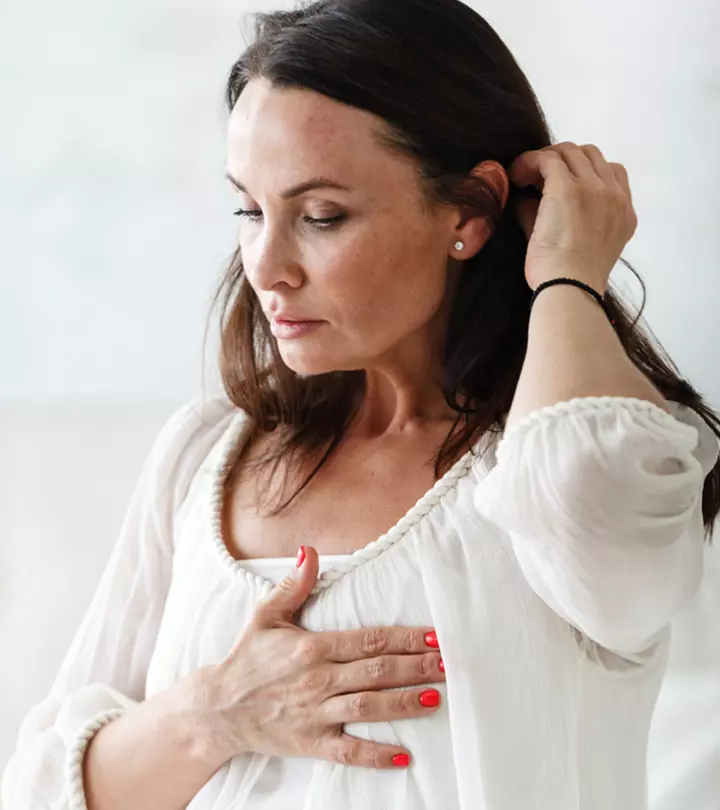





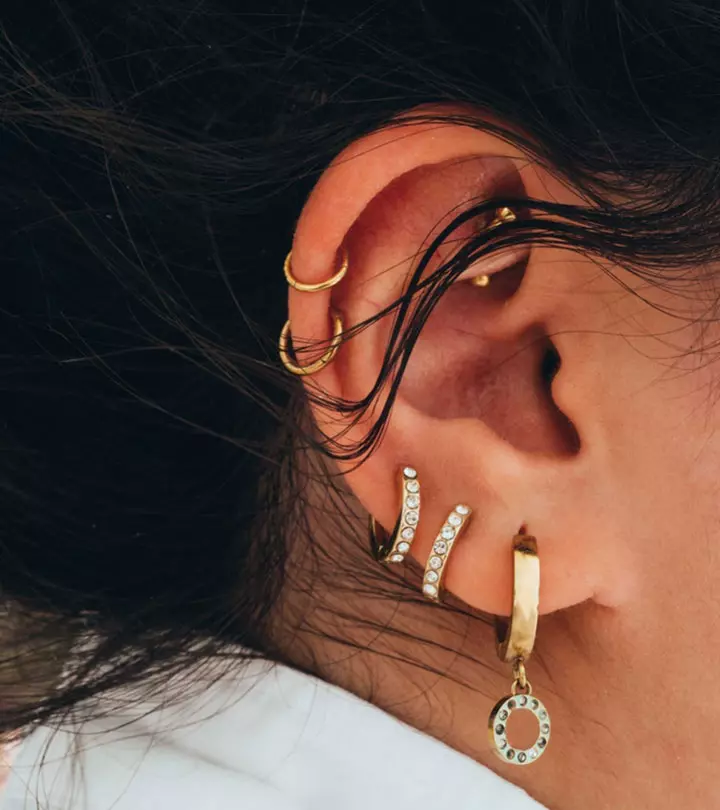



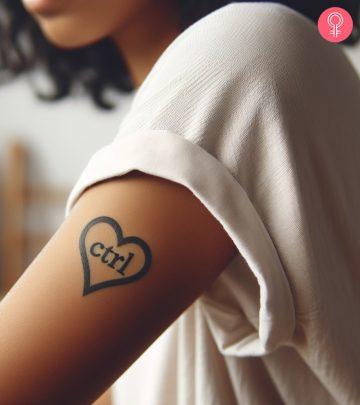
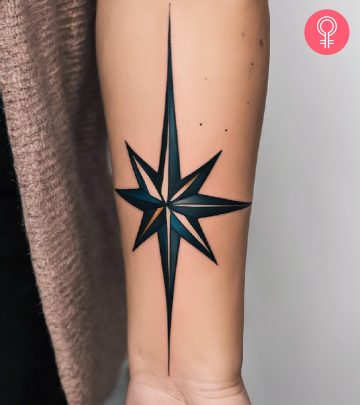
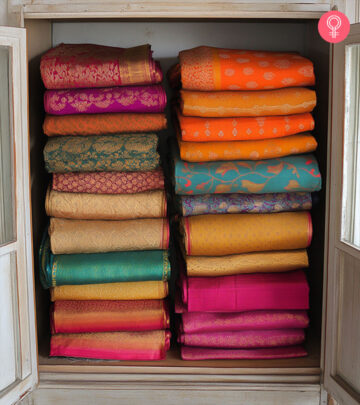
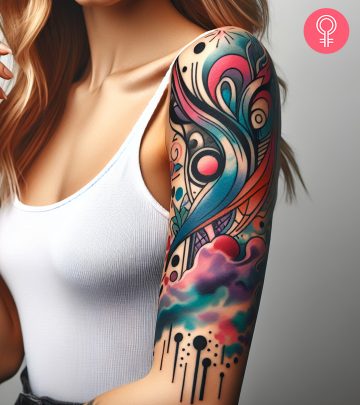
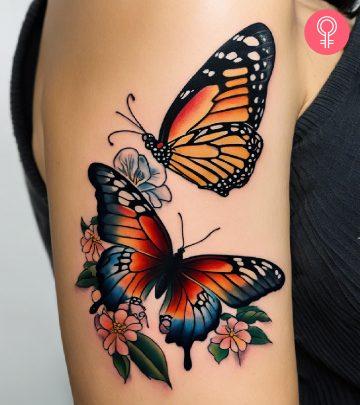
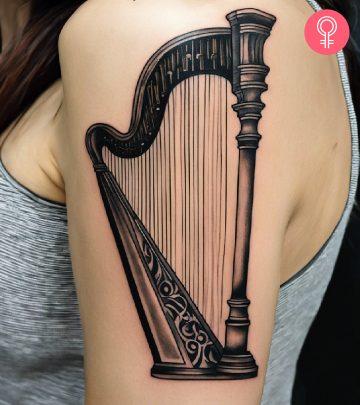
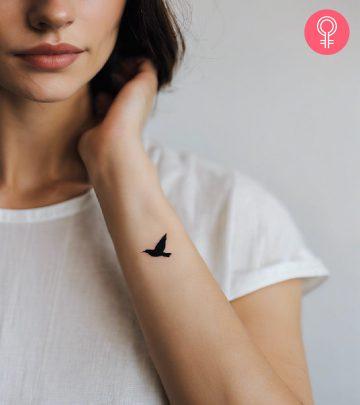
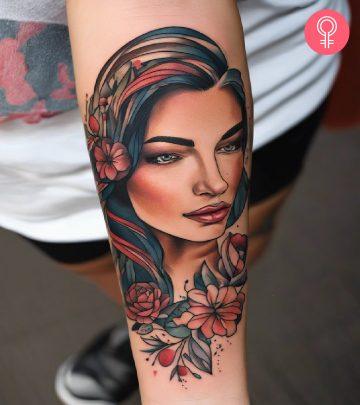
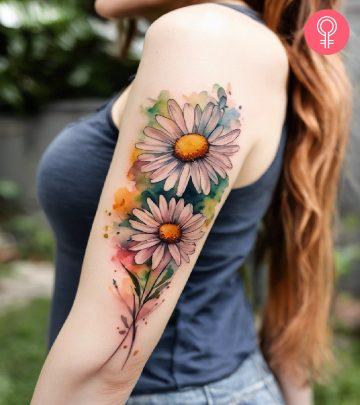
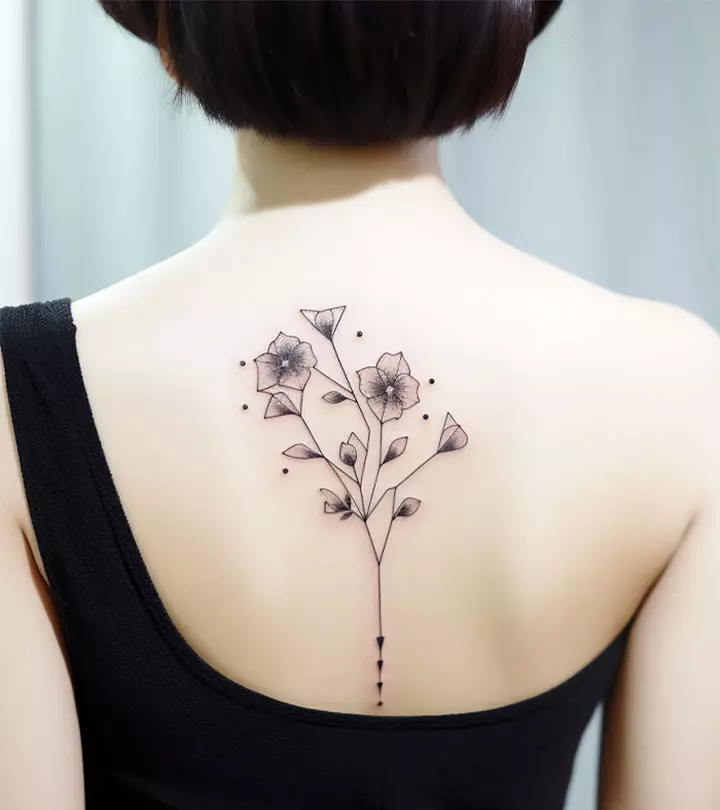
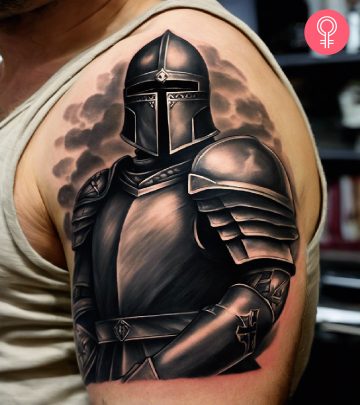
Community Experiences
Join the conversation and become a part of our empowering community! Share your stories, experiences, and insights to connect with other beauty, lifestyle, and health enthusiasts.